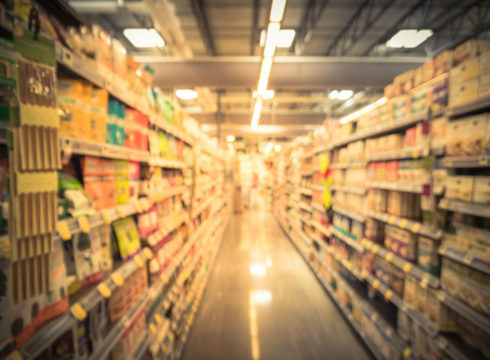SUMMARY
Future Group's distribution centres will be located within 200 km of each of its outlets
This will ensure faster and regular replenishment of stock
The move will also help Future Group cut costs and save space used to stock products in stores
Inc42 Daily Brief
Stay Ahead With Daily News & Analysis on India’s Tech & Startup Economy
The Future Group, the Kishore Biyani-led retail brand, is reportedly planning to invest $68.8 Mn–$110.3 Mn (INR 500–800 Cr) over the coming four years with a view to creating a nationwide food supply chain network of refrigerated trucks. The Mumbai-based company also aims to launch temperature-controlled distribution centres (DCs), which will eventually help manage its entire supply through this network.
The development comes at a time when the Indian online grocery business is drawing serious attention from global retail and ecommerce companies such as Amazon and Walmart.
At present, the Future Group’s retail chain of stores, Big Bazaar, follows a hybrid supply chain model where food and FMCG products are mostly supplied to the stores by companies such as Hindustan Unilever and Colgate Palmolive, with only a part of its supplies coming from its own distribution centres.
The Future Group is hoping to change this structure by introducing its new model, which is in line with US-based retail giant Walmart’s existing model. Once the new model is implemented, the company’s entire food and FMCG products will be supplied from its own distribution centres that are to be located within a range of about 200 km from each of its retail outlets.
The distribution centres will be backed by technology, which will give real-time inventory levels in stores to help them replenish stocks at regular intervals.
According to media reports, using this model can help the Future Group save costs and also free up around 1,000 sq ft in each Big Bazaar outlet that was used for stocking supplies. This ‘back office’ of supplies will not be required with the DCs being set up in close proximity to the stores.
Response to an email sent by Inc42 to the Future Group was awaited till the time of publishing this article.
Future Group: Stepping Up Its Retail Game
With ecommerce companies such as Amazon, Walmart-Flipkart, and online groceries such as BigBasket and Grofers giving tough competition to brick-and-mortar stores, the Future Group has been working hard to overhaul its strategy to remain ahead in the game. In November 2017, Biyani announced the launch of the Future Group’s Retail 3.0 business model, named Tathaastu, which would blend technology with brick-and-mortar.
Here are some other recent developments at Future Group:
- The Indian private conglomerate recently shared its plans to raise funds for expansion through tie-ups with technology companies
- It is also planning to start delivering milk, eggs, and bread at users’ doorstep every morning by launching 1,000 outlets under the Easyday, Nilgiris, and Heritage brands
- In June 2018, the company was in talks to launch a grocery delivery app, which would route the deliveries through its neighbour format stores — EasyDay
According to a Goldman Sachs report, the Indian online grocery market is estimated to reach $40 Mn (INR 270 Cr) by FY19, growing at a CAGR of 62% from 2016 to 2022. A sector which was earlier considered as a low-margin, hard-to-crack business model, is now attracting retailers worldwide.
Not only the Future Group, but also other players such as Amazon India (Amazon Pantry, Amazon Prime Now), and Flipkart (Supermart) are also trying to capture a larger piece of the piece, which are dominated by online grocery startups BigBasket and Grofers.
Also in line are micro-delivery players such as Milkbasket, Daily Ninja, ZopNow, Satvacart, and Godrej Nature’s Basket, which are bagging a significant share of online grocery shoppers.
It must be noted that some of these players are supported by deep-pocketed foreign giants who are pumping in millions of dollars to boost their online grocery divisions. Some of the notable investments are Grofers, which is backed by Softbank, BigBasket by Alibaba, Dunzo by Google, and Flipkart Supermart by Walmart.
Only today (September 17), Inc42 reported that BigBasket and Grofers may look at a merger to fight the tough competition from Amazon and Flipkart. Now, with the Future Group strengthening its supply chain with its network of distribution centres, competition in the sector is set to intensify further.
[The development was reported by ET.]
Note: We at Inc42 take our ethics very seriously. More information about it can be found here.


